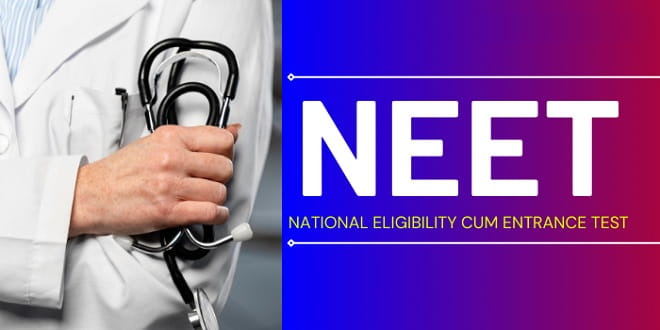Living in the 21st century is like we’re living in a digital aquarium where everything from your morning coffee order to your bedtime reading has gone digital. Education hasn’t been left behind in this tech takeover. In fact, it had a front-row seat to some of the most exciting changes. One such radical change that’s been the talk of the town is online examinations. Yep, the days of pen-and-paper exams are quickly becoming a distant memory as virtual exams have zoomed into the picture. Where students are quite excited about online exams but on the other hand parents and teachers are concerned about the other side of the picture. Therefore we’re going to deep-dive into this digital sea and explore the highs and lows of online exams. Let’s shine a light on the pros and cons, and see if we can figure out a balanced view of this modern-day evolution.
Advantages of Online Exams
It would be best to start off with the advantages of online exams. Don’t you think? Well, when it comes to online exams, teachers and parents are quite concerned about a few things, and if you are one (a teacher or a parent) we’d advise you to first take a look at the good side of conducting online exams.
1. Time and Money Saved
Big on the list is the savings in time and cash. When you bring exams into the digital world, you’re not just going high-tech; you’re saving a bunch of time for everyone involved. You see, students can take these exams from pretty much anywhere, so say goodbye to commuting and hello to comfy clothes and convenience. And teachers? They get to kick back a little too, freed from the process of creating, spreading around and grading physical exam papers. A major bonus is a financial part: it gets rid of a lot of unnecessary costs associated with old-school exams, like printing and transportation.
2. Safety and Privacy
Online exams give safety and privacy a real meaning. Thanks to online exams, now the whole exam conducting thing is transparent and we can avoid any shady manipulation of results, ensuring everyone gets a fair shake. And another perk? Students get their grades confidentially, reducing some of that dreaded grade anxiety. On top of that, the whole process respects privacy. Students can take exams in their own space, adding an extra layer of comfort.
3. Going Green
In a time where going green is cooler than ever, online exams play a big part. Since these exams are paperless, schools that have hopped onto the online-exam train are doing their bit to save the trees and the environment. It’s not just an earth-friendly move, but it’s also a smart choice economically. A real win-win, if you ask us!
4. Accessibility Is Key
Imagine being able to take an exam from your couch, local café, or even while sitting in a park – the digital world of online exams makes this possible. This kind of high accessibility is a game-changer for students living in remote areas or those who can’t make it to a physical test location. It’s all at their fingertips with just a few clicks on their device of choice, be it a laptop, tablet, or smartphone.
5. Assessment Is Super Easy Now
Last, but not least, online exams streamline the entire assessment process. Teachers can now design, distribute, and grade exams without breaking a sweat, making it way more efficient and effective. And you know what’s even better? There’s a buffet of online exam software available to help teachers in this process, making their jobs a whole lot easier.
Disadvantages of Online Exams
While online exams have their share of perks, they also come with some drawbacks that are worth considering. Here’s the scoop on the not-so-good side of online examinations, in an effort to give you a more well-rounded view.
1. It’s Just A Trust Game
A prime worry with online exams is the fear of foul play, think cheating, and plagiarism. With no physical invigilator keeping a watchful eye, there’s a certain level of trust placed on students to play fair. But let’s face it, the temptation can be pretty strong for some to sneak a peek at their notes or a quick Google search. And nowadays, with AI writing tools at your disposal, the answer to all your exam questions is just a few clicks away. However, all’s not lost; there are plenty of ways to counteract this. For instance, setting a strict timer for the exam, designing thought-provoking, scenario-based questions that require deep thinking, and employing apps that disable the good old copy-paste trick.
2. Internet Dependency
The reality of online exams is that they are as strong as the weakest internet connection. A reliable internet signal is the backbone of these exams, and factors like signal strength glitches or stormy weather can cause a real problem. That’s the reason why many institutions are proactive by sharing regular internet connectivity updates or offering to reschedule exams for students who’ve been victims of the dreaded ‘buffering’ icon on their devices’ screens.
3. Digital Literacy Required
Another speed bump on the road to online exams is the need for everyone involved to be comfortable using computers and digital tools. In our ongoing journey to a fully digital world, it’s essential for schools to take the reins and ensure their students and teachers are armed with the knowledge and skills to handle online platforms effectively. So, when you’re thinking of joining the online exam bandwagon, don’t forget to factor in this requirement for tech-savviness.
4. Missing the Human Touch
The final aspect to consider is the lack of face-to-face interaction in online exams. Traditional exams allow students to ask questions face to face and get immediate feedback, something that’s harder to replicate in a virtual setup. While this may not faze some, others could find it a tough nut to crack. But hey, it’s not an insurmountable problem. Teachers can make use of various online communication tools to bridge this gap and keep the lines of communication with students wide open.
Conclusion
Summing it all up, in our quest to make learning available to all, regardless of where they are, online exams could be a game-changer. However, it’s not about blindly embracing them but using them ethically. As we move forward, our goal should be to develop a system that puts learning first, maintains the honor code, and caters to the unique needs of everyone involved.

Rahul Kumar is a passionate educator, writer, and subject matter expert in the field of education and professional development. As an author on CoursesXpert, Rahul Kumar’s articles cover a wide range of topics, from various courses, educational and career guidance.



